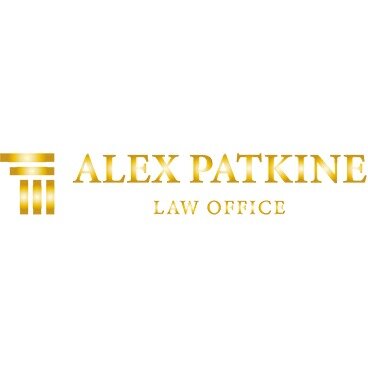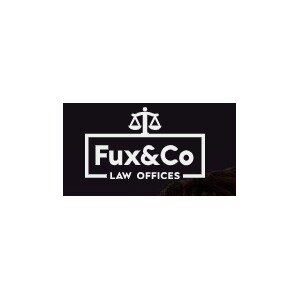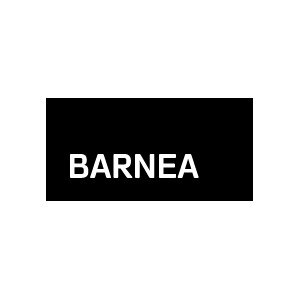Best Foreclosure Lawyers in Tel Aviv
Share your needs with us, get contacted by law firms.
Free. Takes 2 min.
Free Guide to Hiring a Real Estate Lawyer
List of the best lawyers in Tel Aviv, Israel
About Foreclosure Law in Tel Aviv, Israel
Foreclosure law in Tel Aviv, Israel, pertains to the legal process by which a lender can repossess or sell a property due to the owner's failure to meet the mortgage obligations. This process is regulated by a combination of Israeli national laws and local regulations. The aim is to ensure both the rights of the lender to recoup their investment and the rights of the borrower who may face losing their home. Navigating foreclosure law can be complex, and understanding the local legal framework is essential for anyone facing foreclosure or seeking to foreclose on a property.
Why You May Need a Lawyer
There are several situations where legal assistance can be crucial:
- Understanding the Process: The foreclosure process involves numerous legal steps and documents. A lawyer can help you understand each phase and ensure compliance with the law.
- Negotiating Settlements: If you are facing foreclosure, a lawyer can negotiate with lenders on your behalf to potentially modify loan terms or reach settlements to avoid foreclosure.
- Defending Against Wrongful Foreclosure: Sometimes foreclosures occur due to errors or illegal practices. Legal representation can help defend against unwarranted foreclosure actions.
- Legal Representation in Court: Foreclosure proceedings may end up in court. Having a knowledgeable lawyer can significantly impact the outcome.
Local Laws Overview
Foreclosure laws in Tel Aviv, Israel, include several key aspects:
- Notice Requirement: Lenders must provide borrowers with adequate notice of default and intent to foreclose, allowing them time to address the issue.
- Redemption Period: Borrowers may have a period during which they can pay the outstanding debt and stop the foreclosure process.
- Court Supervision: In many cases, foreclosure actions are subject to court supervision, ensuring due process and protecting the rights of both parties.
- Public Auction: Foreclosed properties are often sold through public auctions. The process and requirements for these auctions can be complex and are regulated by law.
- Tenant Protections: Laws may protect tenants living in properties that are being foreclosed, allowing them to continue inhabiting the property for a certain period.
Frequently Asked Questions
1. What is the first step in the foreclosure process?
The first step is usually a notice of default from the lender, informing the borrower that they have missed mortgage payments and must rectify the situation to avoid foreclosure.
2. How long does the foreclosure process take in Tel Aviv?
The length of the process can vary depending on the specific circumstances, but it typically takes several months from the initial notice of default to the foreclosure sale.
3. Can I stop the foreclosure process?
Yes, it is possible to stop the process by paying the overdue amounts or negotiating with the lender for a loan modification or repayment plan.
4. What happens to my property after foreclosure?
After foreclosure, the property is usually sold at a public auction. The proceeds are used to repay the mortgage debt, and any excess funds may be returned to the borrower.
5. Do I need to attend the foreclosure auction?
While you are not required to attend, it can be beneficial to be present to understand the outcome and any remaining obligations you may have.
6. What rights do I have as a borrower facing foreclosure?
Borrowers have the right to receive proper notice, an opportunity to rectify the default, and the right to defend against wrongful foreclosure practices.
7. Can tenants be evicted during foreclosure?
Tenants have certain protections, and in many cases, they can continue living in the property for a designated period even after foreclosure.
8. Are there alternatives to foreclosure?
Yes, alternatives include loan modifications, short sales, and deeds in lieu of foreclosure, all of which can potentially avoid the foreclosure process.
9. What should I do if I receive a notice of foreclosure?
Contacting a lawyer immediately is crucial to understand your options and take timely action to protect your rights and interests.
10. How are foreclosure proceeds distributed?
The proceeds from a foreclosure sale first go to covering the mortgage debt and related costs. Any remaining funds are distributed to other lienholders and then to the borrower, if applicable.
Additional Resources
Here are some helpful resources and organizations:
- The Ministry of Justice: Provides information on property rights and the foreclosure process.
- The Israel Bar Association: Can help you find qualified lawyers in the field of foreclosure.
- The Association of Banks in Israel: Offers resources and information for borrowers dealing with foreclosure.
Next Steps
If you need legal assistance with foreclosure, consider the following steps:
- Contact a specialized foreclosure lawyer to discuss your situation.
- Gather all relevant documents related to your mortgage and any communication from your lender.
- Explore potential alternatives to foreclosure with your legal advisor.
- Stay informed about your rights and obligations throughout the process.
Seeking timely legal advice can make a significant difference in managing foreclosure and protecting your rights.
Lawzana helps you find the best lawyers and law firms in Tel Aviv through a curated and pre-screened list of qualified legal professionals. Our platform offers rankings and detailed profiles of attorneys and law firms, allowing you to compare based on practice areas, including Foreclosure, experience, and client feedback.
Each profile includes a description of the firm's areas of practice, client reviews, team members and partners, year of establishment, spoken languages, office locations, contact information, social media presence, and any published articles or resources. Most firms on our platform speak English and are experienced in both local and international legal matters.
Get a quote from top-rated law firms in Tel Aviv, Israel — quickly, securely, and without unnecessary hassle.
Disclaimer:
The information provided on this page is for general informational purposes only and does not constitute legal advice. While we strive to ensure the accuracy and relevance of the content, legal information may change over time, and interpretations of the law can vary. You should always consult with a qualified legal professional for advice specific to your situation.
We disclaim all liability for actions taken or not taken based on the content of this page. If you believe any information is incorrect or outdated, please contact us, and we will review and update it where appropriate.

















